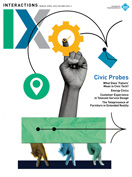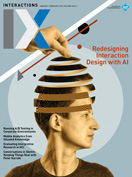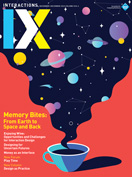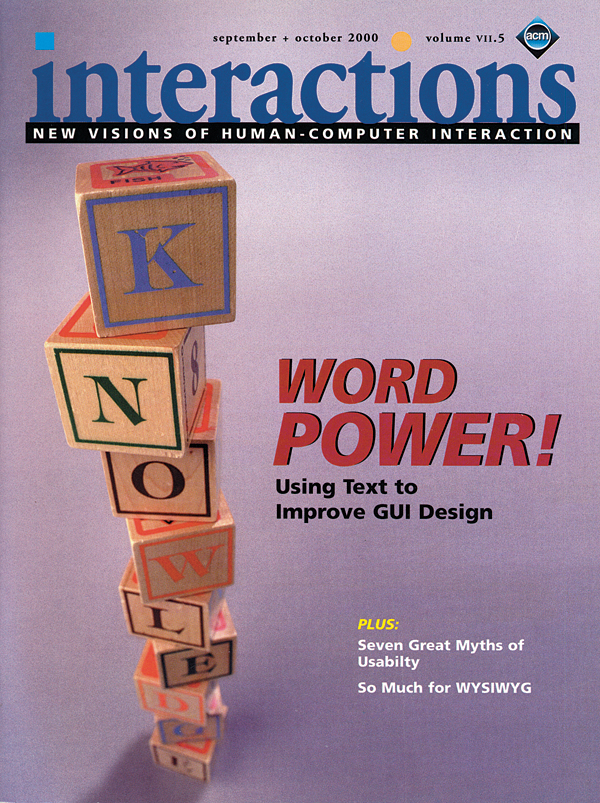Authors:
Marisa Campbell
To meet a need for a discussion forum with a Nordic perspective in the area of HCI, the Swedish Interdisciplinary Interest Group for Human Computer Interaction in cooperation with HCI organizers from other Nordic countries have created the first Nordic conference on human-computer interaction. It will not only include researchers and practitioners from all the Scandinavian countries, but from the rest of the world as well. Keynote Speakers Cooperative Designperspectives on 20 years with "Scandinavian IT Design Model" Susanne Bødker, DAIMI, University of Aarhus, Denmark Dan Sjögren, Swedish National Board for Industrial and Technical Development (NUTEK), Sweden Pelle…
You must be a member of SIGCHI, a subscriber to ACM's Digital Library, or an interactions subscriber to read the full text of this article.
GET ACCESS
Join ACM SIGCHIIn addition to all of the professional benefits of being a SIGCHI member, members get full access to interactions online content and receive the print version of the magazine bimonthly.
Subscribe to the ACM Digital Library
Get access to all interactions content online and the entire archive of ACM publications dating back to 1954. (Please check with your institution to see if it already has a subscription.)
Subscribe to interactions
Get full access to interactions online content and receive the print version of the magazine bimonthly.






Post Comment
No Comments Found